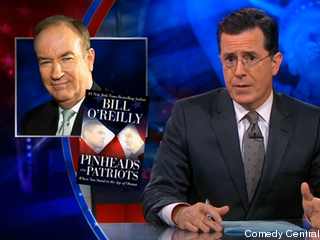It's always easy to look back and identify the top stories of the previous year.
I mean, in 2011, everybody knows the top bananas: We got Osama bin Laden, the Iraq war ended and a Kardashian marriage was short-lived.
But, what about next year's list?
Afterall, 2012 is an Olympic and Leap Year, which is called an Oleapic Year.
It takes guts, not to mention a little insanity, to predict the top stories of 2012.
Well, let's get it started:
1) Barack Obama won re-election by a bigger margin than in 2008, beating the unusual, and some said kinky, ticket of Romney/Bachmann/Paul. Predictably, birthers called for Obama’s immediate impeachment. Teabaggers marched on Washington because a black man was still in the White House.
2) Our military budget escalated even though the ranks were thinned following the draw-downs from Iraq and Afghanistan. Thousands of new, private contractors, who make $200,000 a year instead of $40,000 that a soldier makes, helped balloon the budget. Still, it wasn't enough for some contractors, who dabbled in the local poppy trade in Afghanistan to make ends meet.
3) Iraqis turned to Iran to help end their civil war.
4) Dow Jones Industrial Average rose, then fell, then rose, then fell again before ending the year on a surprising upswing following Obama's convincing election along with a split government.
5) Wall Street embraced socialism again. For the second time in four years, investment banks, those too big to fail, bet recklessly on what they knew were scams knowing full well that taxpayers had no choice but to bail them out once more. As they say, privatize the profits and socialize the costs.
6) Americans “occupied” a lower standard of living. U.S. jobless rate “plunged’ to 7 percent. More Americans worked at Wal Mart, McDonald's and Starbucks than at manufacturing plants. On the bright side, the minimum wage rose here.
7) In Oregon, the jobless rate dropped to 8 percent, but climate change brought warmer temps and clearer skies resulting in a panic over skin cancer.
8) In Bend, buyer's remorse over the 2010 election of D.A. Patrick Flaherty continued. The D.A. launched an investigation into why the state was investigating him.
9) Local Realtors made bold statement: Now is the time to buy.
10) The couch potato named Time's "Person of the Year."
11) Just as the Mayans predicted, their calendar ended on Dec. 21 or 22, 2012, depending on which Internet site you called up. The Hallmark calendar, though, correctly predicted a full year.























